
单元交际用语NG(形容物品、度量、比较)
1.What’s the height of the building? 这座楼有多高?
2.How much does the elephant weight? 这只大象有多重?
3.What’s the color of your new dress? 你的新衣服是什么颜色的?
4.What’s the size of your shoes? 你的鞋多大尺寸?
5.My brother is twice as tall as your sister. 我弟弟比你妹妹高一倍。
6.My grandma is 40 years older than me. 我祖母比我大40岁。
7.This river is one third as long as that river. 这条河只有那条河的三分之一长。
8.What’s the shape of your balloon? 你的气球是什么形状?
9.How wide is this bridge? 这座桥有多宽?
10.How thick is the ice here? 这儿的冰有多厚?
11.This metal is harder than that one. 这种金属比那种硬。
12.He can run as fast as Jim. 他跑得和吉姆一样快。
13.Kate is smarter than I. 凯特比我聪明。
14.How long do you watch TV every day? 你每天看多长时间电视?
15.How often do you go swimming? 你多久去游一次泳?
重点句子及知识点讲解
1. I’m more outgoing than my sister .
主语 + 动词 + 形容词比较级别 + than + 比较对象
2. As you can see , in some ways we look the same , and in some ways we look different .
Look the same 看起来很像,看上去一样
look like 看上去像。后接n./ pron. 时意义才能表达完整 They look like each other.他们看上去像对方
3. However , we both enjoy going to parties .
enjoy doing sth. = like doing sth. 喜欢做某事
both用法: 1)both单独做主语谓语用复数形式。 Both are smart.
2) both of + porn. (pl.) / both of + the/her +n.(pl.) both of us/ the boys are doctors.
3) not both 部分否定“并非两者都”,全部否定时用 neither… nor…
4) both 可以做限定词 Both her eyes are red.
5) both… and… 连并列成分 Both Lucy and Lily are having supper.
4. Liu Li has more than one sister .
more than 不止… 超过… there are more than twenty books in the box. 不止20本书
more than one + n.(sin) + v (sin) More than one girl is there.
v (pl.) More than one are there
5. Liu Li and Liu Ying have some things in common.
in common (团体)共同的;公有的
6. Liu Ying is not as good at sports as her sister .
as(副词)+ adj./ adv. +as(连词) 和……一样 (其中as…as之间的形容词或副词必须用原级);
它的否定式是:not as(so) … as
Lin Tao is as tall as his father He didn’t come as early as Wang Lin
7. Liu Ying talks more than Liu Li .
这里more是much的比较级,而不是many的比较级
8. Both girls go to lots of parties .
lots of = a lot of 许多
9. My friend is the same as me .
be the same as … 与……一样 / be different from …与……不同
10. I think a good friend makes me laugh .
make sb. do sth. 使某人做某事 make / let/ have/ get 表示“使… 让….”
11. For me , a good friend likes to do the same things as me .
like to do sth.
12. That’s not very important for me ….
13. What’s your opinion ?
14. Should friends be different or the same?
same前常有定冠词the
15. I like to have friends who are like me . / I like to have friends who are different from me.
like to do sth.中的like 是动词,意思是“ 喜欢 ”;而are like me 中的like 是介词,意思是“ 像 ”。要注意区别like的词性。
16. I’m quieter than most of the kids in my class.
17. We both like doing the same things . like doing sth. (现在)喜欢做某事
18. Who do you think should get the job , Ruth or Rose ?
19. You must be good with children / enjoy telling jokes .
be good with sb. 对某人好;与某人相处融洽 / enjoy doing = like doing sth. (现在)喜欢做某事
20. He can’t stop talking .
stop doing sth. 意为“ 停止(正在)做的事情”如:When the teacher came in , the students stopped talking and laugh . stop to do sth. 意为“ 停下(正在做的事)去做某事”如:He stopped to write a letter to her .
21. He always helps others .
22. She likes to stay at home and read .
补充资料
1.popular adj. 通俗的,流行的,受欢迎的
a popular song一支通俗歌曲 a popular singer一个流行歌手
She is popular at school. 她在学校里很受人喜欢。
This dance is popular with/among young people. 这种舞很受青年人喜爱。
2.be good at擅长于,精通
He is very good at French. 他精通法语。
3.laugh v. & n. (1)笑
We all laughed loudly when she made a joke. 她说了个笑话,我们都大声笑起来。
We all laughed at his joke. 听了他的笑话我们都笑起来。
He laughs best who laughs last. 谁笑在最后,谁笑得最好。/不要高兴得太早。
(2)(与at连用)嘲笑
Don’t laugh at him. 别嘲笑他。
People have often laughed at stories told by seamen. 人们常常嘲笑海员所讲的故事。
Everyone laughed at his foolish antics. 大家都笑他那种愚蠢的滑稽动作。
(3)笑;笑声 We had a good laugh at his joke. 我们被他的笑话逗得哈哈大笑。
4.though conj. 虽然;纵然;即使;尽管
Though it was raining,he went there. 虽然当时正下着雨,他还是到那里去了。
Though he was poor he was happy. 虽然他很穷却很快乐。
注意:不能受汉语的影响,在though引导的从句后使用but。如:
Though he was poor,but he was happy.(误)
单元知识点
形容词与副词的比较级
大多数形容词(性质形容词)和副词有比较级和最高级的变化,即原级、比较级和最高级,用来表示事物的等级差别。原级即形容词的原形,比较级和最高级有规则变化和不规则变化两种。
1.规则变化
单音节词和少数双音节词,加词尾-er,-est来构成比较级和最高级。
| 构成法 | 原级 | 比较级 | 最高级 |
| 一般单音节词末尾加-er,-est | tall(高的)
great(巨大的) |
taller
greater |
tallest
greatest |
| 以不发音的e结尾的单音节词和少数以-le结尾的双音节
词只加-r,-st |
nice(好的)
large(大的) |
nicer
larger |
nicest
largest |
| 以一个辅音字母结尾的闭音节单音节词,双写结尾的辅
音字母,再加-er,-est |
big(大的)
hot(热的) |
bigger
hotter |
biggest
hottest |
| “以辅音字母+y”结尾的双音节词,改y为i,再加-er,
-est |
easy(容易的)
busy(忙的) |
easier
busier |
easiest
busiest |
| 少数以-er,-ow结尾的双音节词末尾加-er,-est | clever(聪明的)
narrow(窄的) |
cleverer
narrower |
cleverest
narrowest |
| 其他双音节词和多音节词,在前面加more,most来构成比较级和最高级 | important(重要的)
easily(容易地) |
more important
more easily |
most important
most easily |
2.不规则变化
| 原级 | 比较级 | 最高级 |
| good(好的)well(健康的) | better | best |
| bad(坏的)ill(有病的) | worse | worst |
| old(老的) | older/elder | oldest/eldest |
| much/many(多的) | more | most |
| little(少的) | less | least |
| far(远的) | farther/further | farthest/furthest |







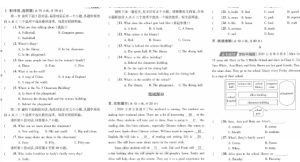
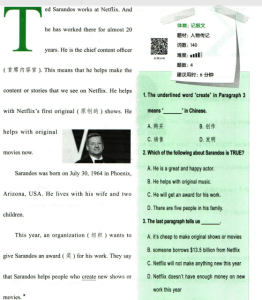
-2023年8上期中考点大串讲(人教版)(原卷版)_00-212x300.png)
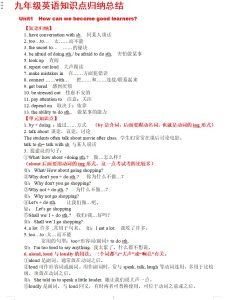

_00-212x300.png)

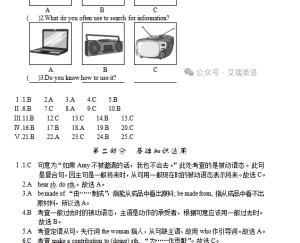
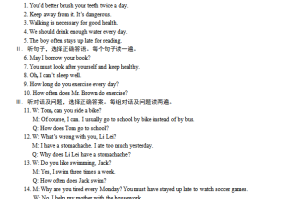


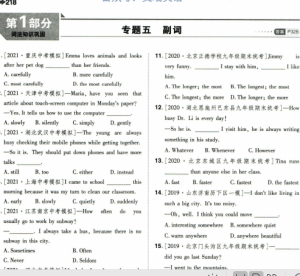
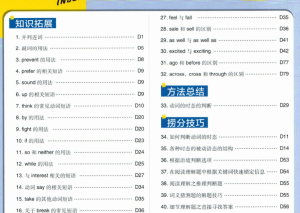
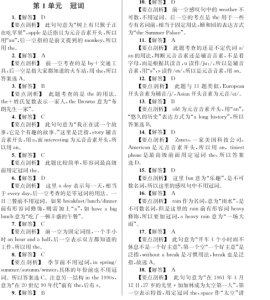
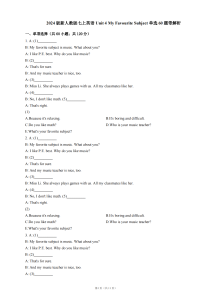

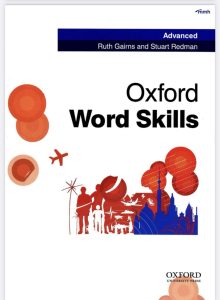
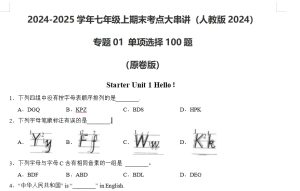
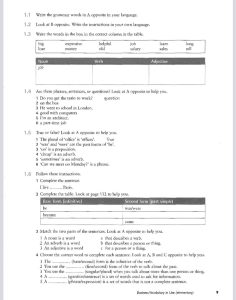



暂无评论内容